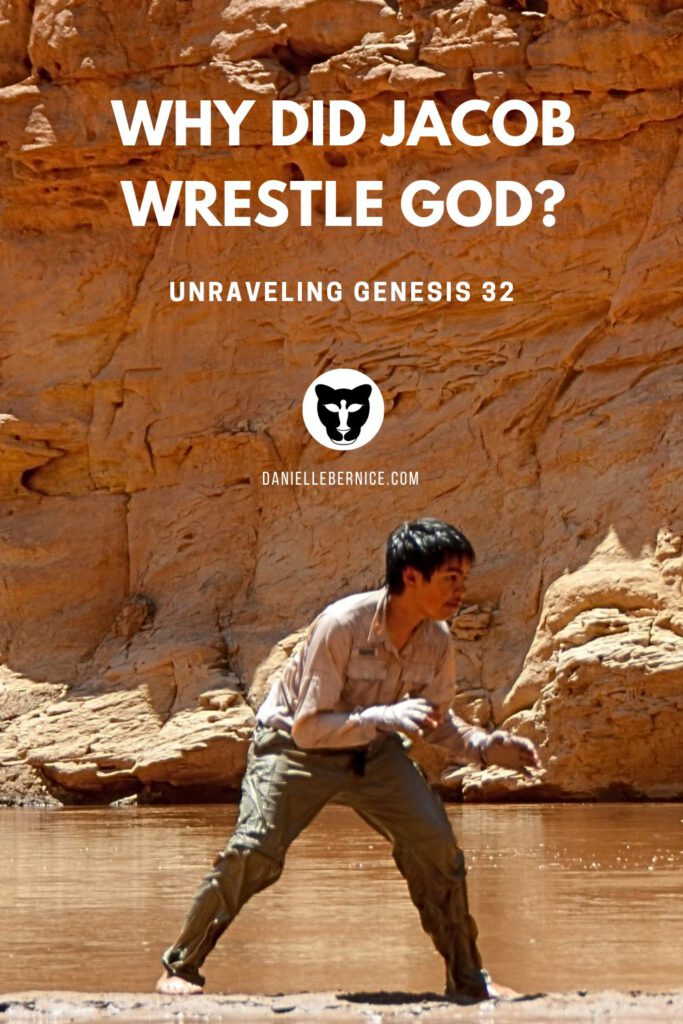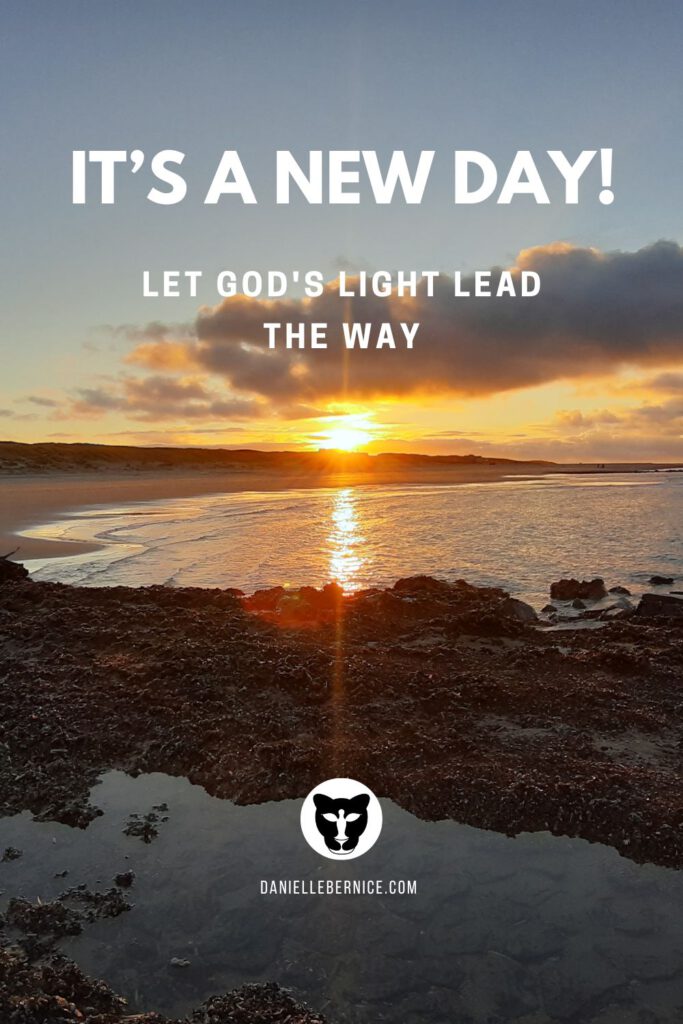Jacob’s wrestling with Someone in the night is one of the more mysterious events depicted in the Bible. But once you see what it means, you will be amazed by what God tells us through this event.
In this fourth part of the series about how Jacob’s journey reveals Christ in our lives, we will look closely at this wrestling moment in Genesis 32:22-32. What does it mean? And why did it happen?
To understand this very prophetic moment in history, we need to see it in its context.
After fulfilling his mission to find himself a wife, Jacob was on his way back to his father Abraham. This time he was far from alone: he had 4 wives, 13 children, and a lot of livestock traveling with him. What started as a person looking for his bride, had now become a people traveling to the land of his father, the promised land. Just like Jesus, Who came to earth to collect his Bride (the Church) with Whom He travels to His Father in paradise.
On this journey home, Jacob became very afraid of meeting his brother Esau. So, he reminded God of His promises and asked Him to deliver him from his enemy (Genesis 32:9-12). God responded that same night…
An unexpected response
After Jacob crossed the river Jabbok (Jabbok means ‘emptying’), with his family and possessions, he was alone. Then a man wrestled with him until daybreak; he couldn’t see the face of the man he was fighting until the very end of the fight. The big question is: who is this man?
In Hebrew, the text uses the word ‘ish’ which means ‘man’, and the man does not identify himself. But Jacob was certain that the man was God, for he said: “I have seen God face to face, and yet my life has been delivered.” And that is why Jacob called that place Peniel, which means ‘the face of God’.
Jacob, who had seen the Man’s face, knew the difference between angels and God, as he had seen both God and His angels in his first dream (Genesis 28:12-13). That leads me to believe that this Man was not “merely” an angel, as some people think, but God in the flesh, a pre-incarnation of Jesus.
[The text continues after the image.]

Why this fight?
That begs the question: Why would Jacob and God fight each other?
After the fight, we learn that God said Jacob’s name would be changed to Israel (which means ‘he strives with God’ or ‘God strives’) because “Jacob had struggled with God and with humans and prevailed” (Genesis 32:28).
I always found this a bit hard to understand; why did Jacob fight with God, why did God seem to have a hard time winning (I mean, He is God!)?
In the previous part of this series, we saw why Jacob left the fight with a limp. But why did they have to fight in the first place? After asking God about this, I started to see that this is a prophetic event with many layers.
The triumph over men could refer to the victories over Laban and perhaps Esau, the humans Jacob was in conflict with. That might be one layer, but definitely not the most important one. We only get to the more important layers by digging a bit deeper.
As Jacob wrestled with God in human form, it was a battle with God that, technically, could be won by either side. Although, of course, Jacob could only kill the flesh, for he could never kill God. And, here is where it gets interesting: even though it seemed as if Jacob (now named Israel) was winning, the One Who was truly victorious was God, Who had set up this whole ordeal to bless Israel.
Let me explain what I mean by this and why this is so important.
Christ crucified
The true significance of this event only becomes clear when you look at it from a bigger perspective: the people represented by Jacob/Israel. Thanks to God’s patience and mercy, the people of Israel would survive wrestling with God many, many times from that moment onwards, as they would rebel against Him on many occasions. The worst of these occasions is the point where they went as far as to crucify Jesus, God in the flesh.
When Christ was crucified, the people of Israel fought against a Man they didn’t recognize as God. They thought they were winning when they crucified Jesus, but nothing could be further from the truth. They too could only kill the flesh, for they could never kill God. So, Jesus was victorious as He rose again and conquered death. He had set up this whole ordeal to bless Israel.
And now we who have been grafted in, share in this blessing.
[The text continues after the image.]

A new day
The conversation God had with Jacob contains more prophetic images that point to Christ crucified. One of those is contained in God’s words “Let me go, for the day has broken.” (Genesis 32:26, ESV). Why did Jacob have to let go because it was daybreak?
It might simply be because God felt that the fight had lasted more than long enough, but I believe that there is more to it than that: He could end the fight at any time, so why would he want it to last specifically until daybreak?
The word God used referred to dawn, which contains an amazing amount of symbolism throughout the Scriptures.
Years ago, God showed me that the sunrise, the breaking of a new day, symbolizes the coming of Jesus and the new covenant (Luke 1:78, 24:1, Matthew 20:1, Psalm 19:4-5, 2 Peter 1:19, Revelation 22:16).
In both the Old and New Testaments, the dawning of light refers to Jesus. For instance in Matthew 4:16, which describes the fulfillment of one of Isaiah’s prophecies: “the people dwelling in darkness have seen a great light, and for those dwelling in the region and shadow of death, on them a light has dawned.” (ESV)
That is why the reference to daybreak is so symbolic: Jacob had seen the Light that would come and save the world.
The Light reveals Jesus
Jacob was unwilling to let go of the Man unless He would bless him. Perhaps he was afraid that the Man would harm him or kill him if he would let go as, up to that point, he did not understand that he was wrestling with God.
How often do we fight God because we fear someone might hurt us? I just caught myself doing this yesterday.
In the darkness, it is hard to see anything clearly; it becomes impossible to discern man from God, or the flesh from the Spirit. We need God’s light to see Jesus for Who He is.
Israel had heard the Man say that He was God, yet, He wanted to know His name. In the same way, the future generation of Israelites would question Jesus about His identity and continue to fight with Him to the point of His death.
For most of the Israelites, Jesus’ identity remains shrouded, for now. Israel was also blinded by darkness at first, however, moments later, he knew he had stood face-to-face with God in the form of a man. And then verse 31 says that the sun rose upon him!
Isn’t that symbolism amazing in light of what we’ve just learned? He was literally met by the Light that enabled him to see clearly.
That reminds me of this prophecy: “Arise, shine, for your light has come, and the glory of the Lord has risen upon you. For behold, darkness shall cover the earth, and thick darkness the peoples; but the Lord will arise upon you, and his glory will be seen upon you. And nations shall come to your light, and kings to the brightness of your rising.” (Isaiah 60:1-3, ESV)
What this means for us
Our journeys are very similar to Jacob’s. Before God sets us free, we are in darkness, fighting against the God Who sustained us and blessed us throughout our lives. In this darkness, we don’t recognize God and His blessings, and try to live life by our own strength, through the works of the flesh.
Jacob was afraid and distressed (Genesis 32:7) and he was alone in the darkness. He had sent all of his family members and his possessions across the stream and stood emptyhanded at the river named ‘emptying’.
Often, when we have nothing to hold on to and to lean on, when the world seems to crumble around us, and when we fall humbly before our God in desperation, we have our deepest, most personal encounters with God. You decide if that encounter is going to be a fight or a hug.
When we stop fighting and rebelling against Jesus, a new day breaks: a new beginning with God’s light rising upon us! From that point on – by the power of God’s Light – we can see Jesus for Who He is and fight for Him instead of against Him.
This doesn’t mean that all aspects of our lives have suddenly become a walk in the park, as we could see in the previous part. And sometimes we are left with a limp, a thorn in our flesh that reminds us of our dependence on Jesus, our Deliverer.
Just like with Jacob, our deliverance is instant, but being set free is also a journey. Our characters will continue to be shaped in God’s light until the end of our days. But thankfully, we can rely on Jesus’s guiding light as we continue to travel to the promised land with Him by our side. So, arise and shine!
Please sign up for the newsletter to see when the next part of this 5-part series is published!

